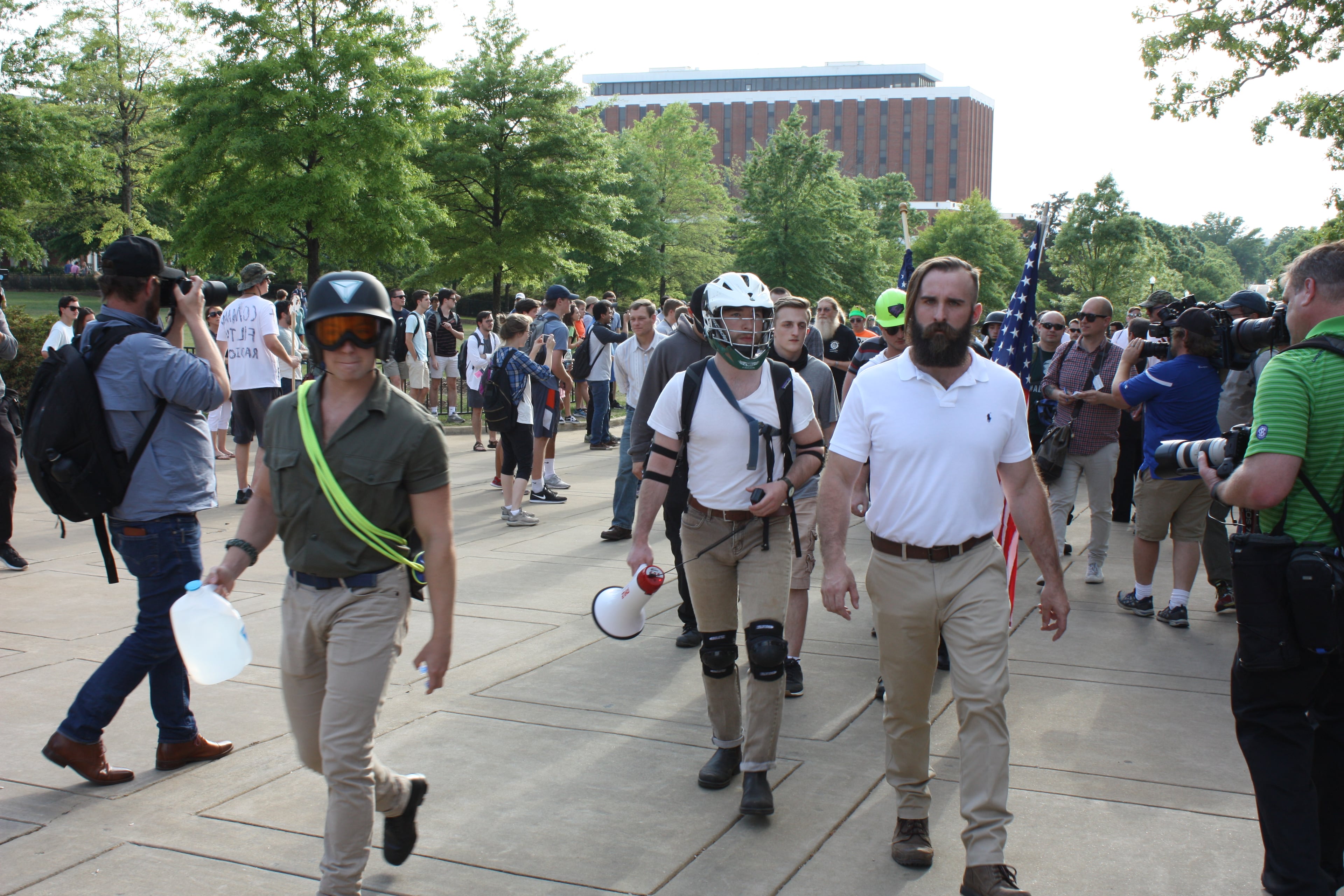A glossary of extremist and fringe movements

The far-right fringe is a mix of movements and ideologies, some of which are new and unfamiliar to many Americans. Here’s a look at some of the major organizations, the beliefs that motivate them, and the far-left movement that has sprung up to oppose them.
Militias — Paramilitary groups organized around the belief that they are preparing to counter an overreaching federal government. Such groups are heavily armed and refer to themselves as “constitutionalists” or “patriots.” They rely on their own reading of the U.S. Constitution for their perceived authority. Militias have been implicated in attacks on immigrant communities and other plots. Last year, a militia group in Michigan plotted to kidnap the governor.
Proud Boys — A right-wing, street-fighting group that is nationalist, anti-immigrant, misogynistic, and anti-LGBTQ+. The group is explicitly pro-Trump and typically members wear black and yellow polo shirts as a uniform. Proud Boys have been implicated in violent episodes around the nation and several leaders have been arrested in connection with the Jan. 6 attack on the U.S. Capitol.

Oath Keepers — A part of the broader militia movement that believes they are preparing to defend against a tyrannical government. Oath Keepers recruit former military, law enforcement and first responders. Several Oath Keepers have been arrested in connection with the Jan. 6 attack on the U.S. Capitol. One “lifetime” member of the group has pleaded guilty and agreed to cooperate with the massive federal investigation into that attack.
Accelerationists — White supremacists who endorse violence to hasten the downfall of the government and pluralistic society and the establishment of a white ethno-state in its place. Accelerationist groups tend to be organized as small cells and some have been accused of plotting terrorist acts. In January 2020, federal authorities arrested alleged members of the Base, an accelerationist group, outside of Rome and charged them with conspiracy to commit murder.
Neo-Nazis — White supremacists who have adopted the rhetoric and symbolism of Adolph Hitler and Nazi Germany. The largest neo-Nazi organization in the United States, the National Socialist Movement, is still rather small and has been in disarray following a leadership crisis.

White Supremacy — The belief that whites are genetically and/or culturally superior to other races and should have dominance over other races. Increasingly, white supremacy is fixated on the belief that there is a broad conspiracy to replace whites as the dominate race, either through immigration or other means.
White Nationalism — A faction of white supremacy that believes whites should rule the country politically and culturally. Some believe a separate white ethno-state should be established.
Antifa — Short for antifascist. A broad, leaderless movement of the far left principally organized around countering the far right, especially neo-Nazis and neo-fascists, sometimes by brawling with them. Politically, antifa is a coalition of communists, socialists, anarchists and progressives.

Neo-confederates — Individuals or groups supporting the secession of states in the former Confederacy and the establishment of white rule. Neo-confederates have been active in opposing the removal of Confederate monuments. One such group, the League of the South, was a prominent part of the chaos at the Unite the Right rally at Charlottesville, Va., in 2017.
Alt Right — A loose collection of far-right individuals who embrace racism, anti-Semitism and extreme nationalism. These individuals reject mainline conservatism. Some personalities within the alt right encourage efforts to take over the conservative movement, while others support forming their own political party.

Odinism/Wotanism/Asatru — A branch of paganism focused on Norse mythology. While not explicitly racist, the religion has attracted far-right converts, especially neo-Nazis, because of its warrior culture and focus on its ethnically European roots. Some convert to distance themselves from Christianity, both because of the message of peace in Christ’s teachings and because they view it as a Jewish religion.


